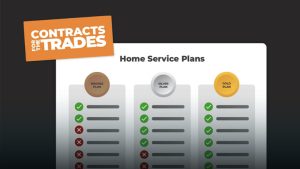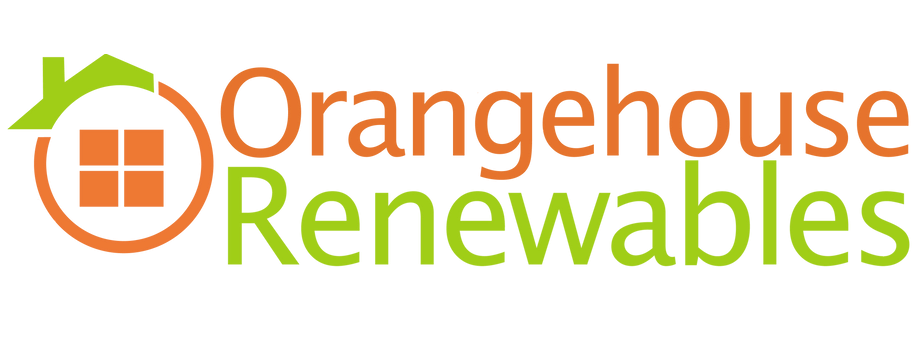How Much Should I Be Charging Per Hour?
December 18, 2022 | Read: 10 minutes

When it comes to pricing, you’ll often hear some of the following questions:
- “What’s our profit margin?”
- “What’s an appropriate daily rate?”
- “How much should I charge per hour?”
No doubt you’ve asked them yourself… but are you sure of your answers?
“How much should I charge?” is a tricky one to answer.
If you undercharge, you’ll lose out, but if you over charge, you can put customers off, too!
It’s a balancing act that requires you to consider many things. This will include profit margin, customer appeal, and what your competitors charge, too. However, it’s important to remember that it shouldn’t be a race to the bottom.
According to Forbes, undercharging is often the result of not valuing what your services are truly worth, so you need to know how to price your products and services appropriately.
So, how do you work out what a reasonable hourly rate is?
We’re here to help answer that, so let’s explore how you can price your services!
We’ll discuss two methods to help you determine your hourly rate. One for if you’re a sole trader and another if you’re working as a larger company. We’ll also share information about how else you should consider value and what that means for you and your customers, too.

How much should I charge my customers?
You may think you’ll attract more customers with low prices, but as stated: undercharging can be bad for your business and it’s also damaging for the field service industry at large, too.
Here’s a common method to establishing price. We’ll dive into more detail, below:
We’ll also cover a second method to help you base prices on your historical price per job data.
Method 1: A pricing model to meet your needs
With this method, you’ll calculate your living expenses, business expenses, and taxes to calculate an hourly price that will cover those costs.
Here’s a step by step guide of how to do it:
Step 1: Calculate your living expenses.
It’s simple: You need to cover all of your costs and, ideally, turn a profit. But we really do mean all your costs. For example, be sure to consider:
- Food
- Housing
- Clothing
- Utilities
- Retirement savings
- Vacations
- Education
- Entertainment
- Childcare
These are just a few examples. For your own business, make a list of all of your known expenses, and jot down an approximate monthly total for each.
Recurring expenses are easy to remember, but be sure to also include occasional expenses like staff bonuses.
Not sure how much you spend?
You can sign up for a financial tracking system like Buxfer. After a few months of accurate data input, you should have an idea of how much you spend on what.
Once you’ve calculated much you spend in each category, add the numbers to a spreadsheet in Excel or Google Sheets. From here, you can see a clear breakdown and summation of expenses. By adding a little extra to budget for unexpected expenses, you can begin to establish what budget is required.
If you just want to get a general number so you can move on with your calculations, try a tool like the Minimum Income Calculator. With this tool, you can establish the minimum amount of money you need to achieve a decent standard of living in the UK.
In this case, be sure to get detailed numbers. The more specific you are, the better the answer to “how much I should charge?” will be.
Step 2: Calculate your business expenses.
Next, list your business expenses and assign a monthly value to each expense.
Once again, include everything!
Here’s a list of the most common business expenses for a sole trader:
- Health insurance
- Liability insurance
- Tools
- Advertising
- Vehicle costs (mileage, maintenance etc.)
- Office supplies
- Phone
- Internet
- Mailbox rental
- Licensing fee
If you could use more help, this website offers a very detailed list of tax allowable business expenses.
Step 3: Calculate your taxes.
You can begin to figure out your tax responsibilities by using the UK Government’s too to help budget for your self-assessment.
Essentially, you pay income tax based on your profit—earnings minus business expenses.
However, your specific tax obligations may be different, so you may want to consider consulting a professional.
Step 4: Use the formula to determine your day rate.
Now that you have an understanding of your costs, do some quick calculations to establish how much you need to charge to live the lifestyle you’ve designed for yourself. This way you can calculate your price per hour as well as how much to charge for other jobs, too (i.e. fixed rates, rather than just billable hours).
Note: for the purposes of this exercise we’ll assume that you work typical business hours.
It goes like this:
- Total Yearly Living Expenses = (L)
- Total Yearly Business Expenses = B
- Total billable days/year = H
- Total Taxes (%) = T
Your Day Rate = L/[H * (1 – T)] + B/H
Example:
Let’s say you need to make £36,000 per year to meet your living expenses.
You expect your business expenses to be about £14,000 per year, your taxes are estimated at around 30%, and you plan to work 261 billable days per year.
- Yearly living expenses = £36,000
- Business Expenses = £14,000
- Yearly Billable days = 261
- Total Tax Rate = 30% = 0.30
- Day Rate = £36,000/[261 *(1-0.3)] + £14,000/261
- Day rate = £251
So to meet your requirements, you need to earn £251 per day.
Now, let’s say you have four billable hours per day, which is fairly typical. You’ll need to charge roughly £62.75 per hour to meet your lifestyle needs. Of course, you’ll want to make a profit, so it’s well worth considering how you can reasonably increase prices (without going too extreme, of course)!
Method 2: A pricing model based on historical data
With this method you look at the time you’ve actually spent, and what you’ve actually charged, for jobs in the past.
To start, gather the financial documents that detail the money you’ve earned on a particular job. That can include your pay stubs, tax documents, or signed contracts.
With this information, answering “How much should I charge?” is easy. You can calculate the total amount paid for the work you did and the amount of time you spent on them.
Repeat this process with other positions you’ve held to get a good idea of your actual salary history, then follow the steps below:
Step 1: Compare your hourly pricing and revenue history.
Is your historical pricing adequate to meet your needs?
If not, you’re undercharging.
It’s important to identify why and then to consider if a price increase is necessary, accordingly.
For example, it could be that you’re often called out to diagnose a fault. If so, it’s key that you make clients aware they’ll pay a call-out charge plus an hourly charge after the first hour.
That will make your prices transparent from the beginning.
If you’re afraid that this will upset customers, remember: It’s better to give them an accurate idea of your pricing upfront than to have to chase them for money later.
Or worse, they might post a bad review online if they think you’ve been dishonest!
Step 2: Take care of practical considerations.
Typically, customers will ask for a fixed price for a job because then they know there will be no nasty surprises on the invoice. So it’s vital to provide one, even for small jobs.
The advantage for you is that you can plan your work accordingly.
That doesn’t something always will go wrong, but it highlights the chance something might. This means it’s your job to mitigate the risk of this happening.
For example, to overcome Murphy’s Law in this instance, you’ll need to add in 15-25% price buffer to give yourself a chance of breaking even on jobs that are likely to become problematic.
Another risk is that while you’re on-site the customer will make a casual request like, “Since you’re here anyway, could you fit a new plug socket?”
This is especially likely to happen if the commissioning customer (a tenant) is not the same individual as the paying customer (the landlord).
Nice guy that you are, you’ll agree to carry out the job and then be afraid to add it to the invoice, since it was never included on the original quote.
Within Commusoft’s job tracking software, we have a useful feature to cover this eventuality, called “Additional Works”. This way the time and parts won’t get lost in your paper trail, and if the (paying) customer queries anything you’ll be able to provide an answer quickly and efficiently.
You can even create an invoice (and use the email templates from our customer communication toolkit) to update and request payment in next-to-no-time, too!
Ultimately, you want to be flexible and when you use software, that can be much easier:
Offering customizable service options or tiered packages allows businesses to cater to a wider range of customer needs and preferences.
Nyokabi Mickensm, CEO
Balancing Value and Price
Creating an effective pricing strategy may take a little time, but it’ll make your business more professional and more profitable.
You won’t undercharge, and you’ll be securing the success of your business. After all, if you don’t charge enough you won’t be in business for long!
It’s important to remember that value means more than price alone.
A good price represents more than just monetary value. After all, it’s a culmination of your time, experience, expenses, planning, and duty of care. And if you’re good at something, never do it for free: make sure you charge appropriately!
With that in mind, we wanted to touch on value, and not just in terms of literal £££’s
Balance Costs and Value: Determine a Fair Rate:
Value (and price) is not just the time you spend on a job. Here are some basic steps to help you work out the value of your services, so it works for you can your customers:
- Take on board additional expenses: your business expenses, desired wages, and hours worked into account.
- Select prices that reflects the value of different jobs. You can charge more for an after-hours emergency job.
- Consider other factors that determine customer value. For example, your location plays a role in how much people will pay.
- Put it in writing. A pricing document will ensure your prices are clear to customers. If there’s a chance prices can increase, ensure it doesn’t come as a nasty surprise.
While some customers might spend time looking for a cheaper service than yours and judge solely on price per hour, most people are willing to pay well to get the job done efficiently and reliably.
Subscribe for more tips!
If you enjoyed this piece, why not subscribe to the Commusoft newsletter?
Whether you’re a customer or simply a curious character, we share all sorts of content you’re sure to find useful.
Explore our blog, subscribe today, and get in touch to share your thoughts and experience, too!












